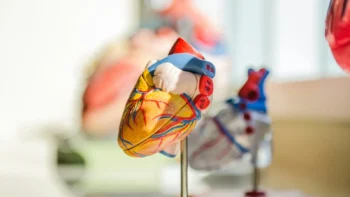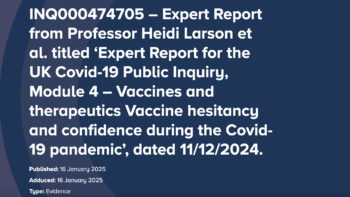What the organ donation system can learn from global experiences with vaccine programs.


What the organ donation system can learn from global experiences with vaccine programs.

The COVID-19 pandemic prompted renewed emphasis on monitoring vaccine confidence. This study extends vaccine confidence surveillance to geographies where such research is limited.

This study aims to expand the scope of HCPs’ vaccine confidence oversight into European regions where limited research has been conducted thus far.

We conducted a social listening analysis to assess attitudes towards mRNA vaccines and therapeutics on Twitter from June 2022 to May 2023. Our findings reveal widespread negative sentiment and a global lack of confidence in mRNA vaccines and therapeutics, with frequent discussions of severe vaccine side effects, rumors, and misinformation.

Influenza vaccination coverage in South Africa is less than 3% among the general adult population. We explored factors associated with influenza vaccine uptake using the World Health Organization’s Strategic Advisory Group on Immunization (SAGE) 3C (confidence, complacency, convenience) model of vaccine hesitancy.

This paper offers two scenarios to argue for the possibilities of building trust during crises by engaging with existing distrust, with special reference to examples during the COVID-19 pandemic.

VCP Director Professor Heidi Larson and VCP team members Dr Alexandre de Figueiredo, Caitlin Jarrett and Rachel
Eagan authored an expert report for the UK Covid-19 Public Inquiry on vaccine hesitancy and confidence during the Covid-19 pandemic.

Vaccine confidence remains a global public health challenge, especially highlighted during the COVID-19 pandemic. This study aims to expand the scope of HCPs’ vaccine confidence oversight into European regions where limited research has been conducted thus far.

This study used a mixed-methods pre-test-post-test intervention design to test the effectiveness of tailored, context-specific education and community engagement – including community and social media – to increase influenza vaccination uptake in Soweto, South Africa.

Trust is fundamental to cooperation, essential in times of crisis. Researching and understanding trust networks and perceptions of trustworthiness is therefore crucial in preparing for future health shocks, write Heidi Larson and colleagues.

As health narratives in the climate change discourse become more visible, the intersection of health and climate change will soon become a critical area vulnerable to misinformation and disinformation campaigns.

The objective of this systematic review was to examine documented uses and evidence on the effectiveness of conversational AI for vaccine communication.